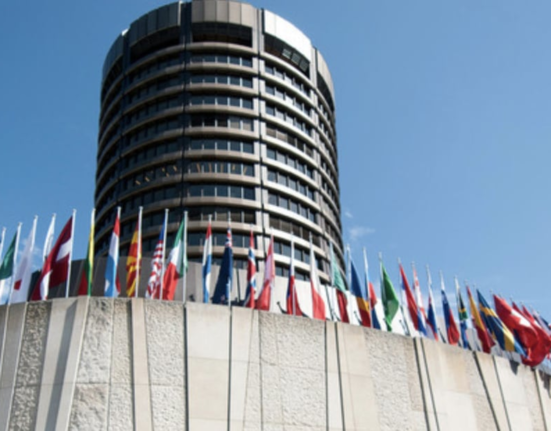While the memory is still fresh of the previous banking crisis that has seen several global banking giants crumble this year, the recent underperformance of Metro Bank (LON: MTRO) could signal another crisis on the horizon for the already heavily embattled sector.
Specifically, the shares of one of Britain’s first challenger banks have crashed nearly 60% across the previous month, exacerbated by the massive decline of around 30% yesterday alone, following a report it was trying to raise funds to bolster its finances, according to the data retrieved on October 6.
As it happens, various media sources have recently reported that Metro Bank was urgently seeking to raise £600 million – up to £250 million in equity funding and £350 million of debt – from investors, as well as considering selling about £2.3 billion of its £7.5 billion mortgage book in a bid to recover its finances.
Table of Contents
What is Banking Crisis ?
A banking crisis is a large-scale disruption in the functioning of a banking system that threatens the stability of the financial system and the broader economy. It’s characterized by a decline in public confidence in banks, a decrease in the availability of credit, and sometimes bank failures.
Here’s a breakdown of what happens during a banking crisis:
Loss of Confidence: A banking crisis often starts with a loss of confidence in banks. This can be triggered by various factors, such as:
- Economic Downturn: During a recession, businesses and individuals may default on their loans more frequently. This can lead to banks suffering significant losses and raise concerns about their solvency (ability to meet their financial obligations).
- Discovery of Risky Lending Practices: If it’s revealed that banks have been engaged in risky lending practices, such as issuing too many loans to borrowers who are unlikely to repay them, depositors may become worried about the safety of their money.
- External Shocks: Global financial crises or unexpected events like pandemics can also trigger bank runs, as people rush to withdraw their money from banks.

Bank Runs: When depositors lose confidence in a bank, they may rush to withdraw their money all at once. This is called a bank run. If a bank experiences a large number of withdrawals in a short period, it may not have enough cash on hand to meet all the demands. This can force the bank to close its doors or limit withdrawals.
Credit Crunch: Bank failures and a loss of confidence in the banking system can lead to a credit crunch. This means that banks become more reluctant to lend money, as they are worried about borrowers defaulting on their loans. This can stifle economic activity, as businesses and individuals have difficulty accessing the credit they need to invest and grow.
Government Intervention: During a banking crisis, governments often intervene to try to stabilize the financial system. This may involve:
- Providing liquidity to banks: Central banks can inject money into the financial system to ensure that banks have enough cash on hand to meet their obligations.
- Guaranteeing bank deposits: Governments may guarantee bank deposits up to a certain amount to reassure depositors and prevent bank runs.
- Rescuing failing banks: In some cases, governments may provide financial assistance to failing banks to prevent them from collapsing.
The severity of a banking crisis can vary depending on the specific circumstances. However, all banking crises can have a significant negative impact on the economy, leading to job losses, business failures, and a decline in living standards.
Understanding Banking Crisis 2.0?
Banking crisis 2.0 refers to a hypothetical future financial crisis that could share similarities with the 2008 financial crisis. However, the exact causes and consequences of a Banking Crisis 2.0 are unknown and speculative.
Here’s a deeper look at Banking Crisis 2.0:
Similarities to 2008 Crisis:
- Widespread Financial Disruption: Just like the 2008 crisis, Banking Crisis 2.0 could cause significant disruption in the financial system, impacting banks, borrowers, and the overall economy.
- Loss of Confidence: A key element of both scenarios is a potential loss of confidence in banks. This could lead to bank runs, credit crunches, and economic hardship.
Uncertain Triggers:
- Unlike the 2008 crisis, which stemmed largely from deregulation in the mortgage industry, the specific triggers for Banking Crisis 2.0 are difficult to predict. Here are some potential causes:
- Excessive Debt: High levels of household or corporate debt could lead to defaults if there’s an economic downturn.
- Asset Bubbles: Inflated asset prices in stocks or real estate could eventually burst, causing significant losses for financial institutions.
- Cybersecurity Threats: Cyberattacks on banks could disrupt financial services and erode trust in the system.
Focus on Prevention:
- Financial regulators around the world are aware of the potential for future crises. They are working to implement stricter regulations and improve risk management practices in the banking system to prevent such an event.
The Unknown:
- The nature and severity of a potential Banking Crisis 2.0 remain uncertain. It’s important to remember that this is a hypothetical scenario, and the financial system may be more resilient than it was in 2008.
Looking Ahead:
- By learning from past crises and taking preventative measures, policymakers and financial institutions can work towards a more stable financial system. However, staying vigilant and prepared for unforeseen circumstances is crucial.
MTRO stock price analysis
At press time, the price of MTRO stock amounted to $42.15, which means it has accumulated a loss of 26.31% in the last five days, losing 57.87% to its value across the previous 30 days, dropping 56.86% over the course of the past six months, and declining 64.52% since the year’s turn.
Indeed, the recent decline of Metro Bank has reminded many of the previous banking crisis during which Silicon Valley Bank (SVB), Silvergate Bank, Signature Bank, and First Republic Bank (NYSE: FRC) had all suffered catastrophic declines as the “banking contagion” spread, and investors rushed toward alternative assets, including cryptocurrencies like Bitcoin (BTC) and Ethereum (ETH).
Interestingly, Metro Bank was one of the banks that received massive cumulative penalties from the United Kingdom’s regulators this year, amounting to £10 million ($12.41 million) between June 2022 and June 2023 and ranking as the fourth-highest penalty amount in the UK after those against Santander UK, TSB Bank, and Citigroup, according to a report by Finbold published on June 7.
A Dramatic Fall: Metro Bank Share Price Plummets 60%
Metro Bank, once hailed as a disruptor in the banking industry, has seen its share price take a nosedive – a staggering 60% drop in just one month! This dramatic decline came after the bank revealed a need for additional capital to comply with regulations.
Deja Vu 2008? Similarities and Differences
The Metro Bank situation has some drawing parallels to the events leading up to the 2008 financial crisis:
- Loss of Confidence: A key concern, just like in 2008, is the potential erosion of public trust in the banking system. This could trigger a domino effect, impacting other banks.
However, there are crucial differences:
- Limited Exposure: Metro Bank is a relatively smaller player compared to the giants involved in 2008. This could potentially limit the overall impact on the financial system.
Potential Triggers for a Banking Crisis 2.0
While the specific causes of Banking Crisis 2.0 are unknown, some potential triggers include:
- Debt Mountain: Imagine everyone you know maxed out on credit cards. If the economy dips, people might not be able to repay their debts, causing problems for banks.
- Asset Bubbles: Think of those overinflated pool toys. If asset prices like stocks and real estate get too high, they could eventually burst, leading to major losses for financial institutions.
Are We Headed for Another Crisis?
Financial experts are divided on whether Metro Bank’s situation is a harbinger of a larger crisis. Here’s what you need to remember:
- Prevention Efforts: Financial regulators are working to implement stricter regulations to prevent a major crisis.
- The Unknown Factor: The nature and severity of a potential Banking Crisis 2.0 remain uncertain. The financial system may be more resilient than in 2008.
Stay Informed, Stay Prepared
While a full-blown banking crisis may not be imminent, being aware of the potential risks allows you to take steps to protect your finances. Knowledge is power in the world of money, and a little financial preparedness goes a long way.
Why Experts Are Divided: Key Differences
Despite the comparisons, several factors suggest this may not be a harbinger of a broader crisis:
- Limited Exposure: Unlike the giant financial institutions involved in 2008, Metro Bank is a relatively small player. While its struggles could impact investor sentiment, the systemic risk is likely lower.
- Lessons Learned: Regulatory reforms implemented after 2008 have made the banking system more resilient. Banks are now required to hold higher capital reserves, making them better equipped to weather financial storms.
The Road Ahead: Preventing Banking Crisis 2.0
Financial regulators and policymakers are actively working to prevent a repeat of 2008:
- Strengthening Regulations: Regulators are constantly reviewing and refining regulations to address new risks and vulnerabilities in the financial system.
- Stress Testing: Banks are regularly stress tested to assess their ability to withstand economic shocks and market downturns.
- Promoting Transparency: Regulatory bodies are emphasizing greater transparency from banks to allow for early identification of potential problems.
What You Can Do: Taking Charge of Your Finances
While the risk of a major financial crisis may be lower than in 2008, it’s always wise to be financially prepared:
- Diversify Your Savings: Spread your savings across different accounts and institutions to mitigate risk.
- Maintain an Emergency Fund: Having a readily accessible emergency fund can provide financial security during unexpected events.
- Stay Informed: Keep yourself updated on financial news and developments to make informed decisions regarding your finances.
The Metro Bank situation serves as a reminder of the importance of a robust financial system and the ongoing efforts to prevent major crises. It’s a wake-up call for both financial institutions and individuals to prioritize responsible practices and financial preparedness.
Disclaimer ||
The Information provided on this website article does not constitute investment advice ,financial advice,trading advice,or any other sort of advice and you should not treat any of the website’s content as such.
Always do your own research! DYOR NFA
Coin Data Cap does not recommend that any cryptocurrency should be bought, sold or held by you, Do Conduct your own due diligence and consult your financial adviser before making any investment decisions!





Leave feedback about this